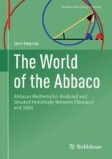Search
Search Results
-
Decision Support versus Knowledge Creation Support
After introductory remarks on interactive computerized decision support and the concept of supporting creativity, this chapter briefly describes the...
-
A Vision of the New Civilization Era
This chapter is organized as follows. After stressing the importance of having a vision on the verge of the new era of knowledge civilization, we...
-
A New Role of Systems Science Informed Systems Approach
This chapter is organized as follows. We show first that, while systems science is by its definition interdisciplinary, a split into soft systems...
-
Basic Dimensions of Creative Space
This chapter, after introductory remarks, starts with a review of the diverse meanings of the concepts knowledge and technology, since Creative Space...
-
Rational Theory of Intuition and Its Epistemological Consequences
This chapter explains and develops the Rational Theory of Intuition introduced in (Wierzbicki 1992, 1997). After preliminary comments, it is...
-
Preliminaries
This is an introductory chapter. We present first a short comparison of the problem of knowledge and technology creation versus the problem of...
-
Further Dimensions of Creative Space
This chapter is organized as follows: in preliminary remarks we recall the I5 or Pentagram System (Nakamori 2000) and note that two of its...
-
Conclusions
The book is dedicated to the theory of knowledge creation and The following summarizes what we feel are the most important conclusions of this book....
-
Abbacus Goes into Print and Abroad
We shall now turn our attention to the afterlife of abbacus culture: on one hand, to what happened as abbacus books went into print; on the other, to...
-
Historical and Methodological Details on the De Motu Gravium Naturaliter Descendentium in Torricelli’s Opera Gometrica (1644)
In this paper, we deal with Torricelli’s principle in mechanics according to which two heavy bodies linked together cannot move by themselves unless...
-
Opera Geometrica (1644) Transcription: General Considerations
This section provides information and background on the selection of Opera geometrica (Fig. 1). We have worked on transcription from Latin and...
-
Opera Geometrica (1644) Transcription: Image–Text Side by Side
This section provides the first full edited transcription—from Latin and Italian vernacular language—of the Opera geometrica. Further, as above said,...
-
An Improved Account of the Belief in the Continued Existence of Bodies
I have two aims in this chapter. I will argue, first, that Hume’s accounts of the aetiology of the vulgar and the philosophical beliefs about...
-
Consequences of the Idealist Interpretation for the Divisibility of Space
In this chapter, I discuss the third metaphysical implication of the Idealist reading, pertaining to the divisibility of space. Is space infinitely...
-
Analytical Probability, Averages and Data Distributions in the 19th Century
It was in the offices of administrative statistics that data work was held in the nineteenth century, where the most massive amount of numerical...
-
Conclusion
In 1953, the publication of the second edition of Whittaker’s book entitled History of the Theories of Ether and Electricity sparked off a heated...
-
Hausdorff’s Student Years and Short-lived Astronomical Career
During his senior year at the Nicolai Gymnasium, Felix Hausdorff probably had a difficult time deciding which course of study he should pursue at the...
-
Paul Mongré as a Philosopher
As a student at Leipzig University, Hausdorff pursued very wide-ranging interests in his studies, which extended far beyond the standard courses in...
-
Is Theology Becoming More Science-Like When Approaching Science? A Reconfiguration of Humanities
A minority of theologians has engaged in recent decades with the social and natural sciences. In most cases this endeavour has been motivated by a...
-
Apologetics and ‘Weltanschauung’ in Germany Since the Nineteenth Century
This essay outlines the development of the apologetic question in Germany since the early nineteenth century. It shows how the associated public...
